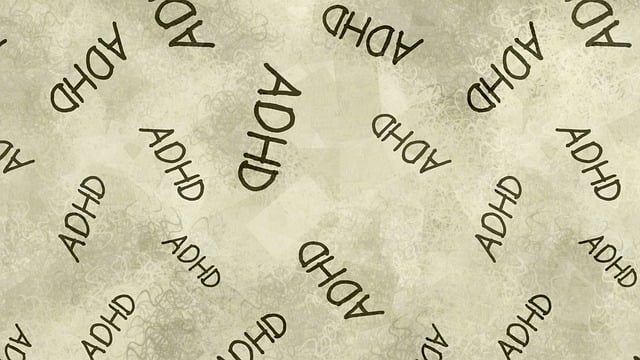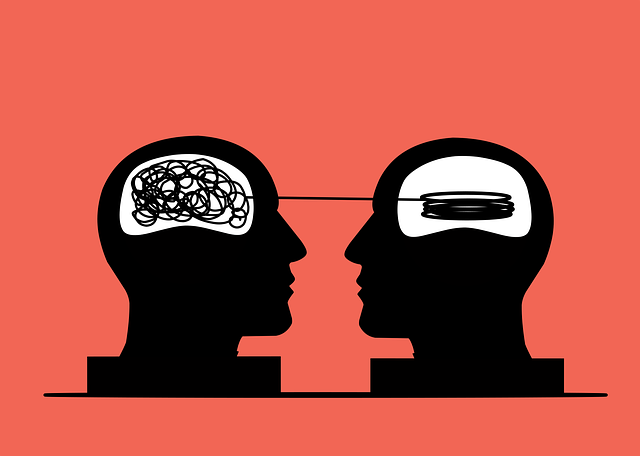Arvada Bilingual Therapy leverages Emotional Intelligence (EI) as a powerful tool for personal growth, improved relationships, and mental well-being. They specialize in recognizing cultural nuances impacting emotional awareness, offering programs that enhance self-awareness through journaling and compassion cultivation practices, all while emphasizing empathy-focused approaches to build stronger communities. Their focus on EI extends to workplace environments, promoting leadership effectiveness and team dynamics, ultimately leading to increased productivity and job satisfaction.
Emotional intelligence (EI) is a powerful tool for effective communication and building strong relationships. At Arvada Bilingual Therapy, we explore the transformative potential of EI, focusing on its key components. This article delves into understanding emotional intelligence, the influence of language and culture, strategies for self-awareness development, empathy enhancement, and practical applications in daily life and work. Discover how cultivating EI can enrich your personal and professional interactions.
- Understanding Emotional Intelligence: A Key to Effective Communication
- The Role of Language and Culture in Shaping Emotional Awareness
- Strategies for Developing Self-Awareness: The Foundation of EI
- Enhancing Empathy: Walking in Someone Else's Shoes
- Practical Application: Using Emotional Intelligence in Everyday Life and Work
Understanding Emotional Intelligence: A Key to Effective Communication

Emotional intelligence (EI) is a powerful tool that facilitates effective communication and robust interpersonal relationships. At Arvada Bilingual Therapy, we recognize its significance in helping individuals from diverse backgrounds navigate complex social dynamics. EI involves recognizing, understanding, and managing one’s own emotions, as well as empathizing with others’ feelings. This multifaceted skill set enables better conflict resolution, strengthens bonds, and fosters a healthier mental environment.
Developing emotional intelligence is crucial for personal growth and professional success. Through our tailored programs, Arvada Bilingual Therapy guides individuals in enhancing their coping skills and building self-esteem, thereby improving their overall well-being. Furthermore, we emphasize the importance of risk management planning for mental health professionals, ensuring they possess the EI necessary to provide compassionate and effective care to their clients.
The Role of Language and Culture in Shaping Emotional Awareness

Language and culture play a profound role in shaping an individual’s emotional awareness. Different languages often have unique ways of expressing and conceptualizing emotions, which can influence how people recognize and interpret them. For instance, some cultures may have a richer vocabulary for describing subtle feelings, allowing individuals to develop a more nuanced understanding of their own and others’ emotions. This heightened emotional intelligence can be particularly beneficial in complex social interactions, enabling better communication and conflict resolution.
In the context of Arvada Bilingual Therapy, understanding these cultural nuances is essential. By integrating language and cultural perspectives into therapy practices, professionals can create safe spaces for clients to explore their emotions, fostering effective depression prevention strategies. This approach leverages the power of mind over matter principles, where self-awareness and language become tools for empowering individuals to navigate life’s challenges. Furthermore, community outreach program implementations that prioritize cultural sensitivity can enhance emotional literacy on a broader scale, contributing to a more resilient and supportive society.
Strategies for Developing Self-Awareness: The Foundation of EI

Developing self-awareness is a cornerstone of building emotional intelligence (EI), and it’s where Arvada Bilingual Therapy can play a pivotal role. This journey inward involves recognizing your emotions, understanding their triggers, and interpreting them in a way that fosters mental wellness. One effective strategy is maintaining a mental wellness journal. By dedicating time each day to reflect on your feelings, thoughts, and behaviors, you can identify patterns and gain valuable insights into your emotional landscape.
Additionally, engaging in compassion cultivation practices can significantly enhance self-awareness. Being mindful of your reactions and responding with compassion rather than judgment helps you develop a deeper understanding of yourself and others. These practices promote empathy and resilience, which are key aspects of EI. Depression prevention, for instance, often benefits from this heightened awareness, enabling individuals to recognize early signs and take proactive steps towards managing their mental health effectively.
Enhancing Empathy: Walking in Someone Else's Shoes

At Arvada Bilingual Therapy, we understand that building emotional intelligence is a crucial aspect of personal growth and healthy relationships. One powerful tool within this framework is cultivating empathy—the ability to truly understand and share the feelings of another. Empathy allows us to walk in someone else’s shoes, seeing the world through their eyes and experiencing their emotions as if they were our own.
Through various self-awareness exercises and empathy building strategies, individuals can enhance their cultural sensitivity in mental healthcare practice. By practicing active listening, observing non-verbal cues, and embracing diverse perspectives, we develop a deeper connection with others. This fosters more meaningful interactions, strengthens relationships, and promotes a sense of community. At Arvada Bilingual Therapy, we believe that these empathy-focused approaches are game changers in personal development and can lead to profound transformations in both individual and collective well-being.
Practical Application: Using Emotional Intelligence in Everyday Life and Work

Emotional intelligence (EQ) goes beyond self-awareness; it’s a powerful tool for navigating life and work. In everyday scenarios, recognizing and managing emotions can foster better connections. For instance, a simple act like active listening, a skill often emphasized in Arvada Bilingual Therapy programs, allows individuals to understand others’ feelings, fostering empathy and strengthening relationships. This is particularly beneficial in diverse communities where cultural differences can impact communication.
At the workplace, EQ plays a significant role in leadership and team dynamics. Leaders with high emotional intelligence can motivate their teams by creating an empathetic environment, leading to improved productivity and job satisfaction. Moreover, mental wellness coaching programs and community outreach initiatives focused on burnout prevention can integrate EQ development, enabling individuals to handle stress more effectively and promote overall well-being.
Emotional intelligence, a powerful tool for enhancing communication and relationships, is within reach for all. By understanding its components and implementing practical strategies, such as cultivating self-awareness and empathizing with others, individuals can significantly improve their emotional intelligence. At Arvada Bilingual Therapy, we recognize the transformative potential of EI in both personal and professional settings, encouraging folks to navigate life’s challenges with greater ease and connection. With dedicated practice, anyone can develop and strengthen their emotional intelligence, fostering deeper connections and a more fulfilling life.











